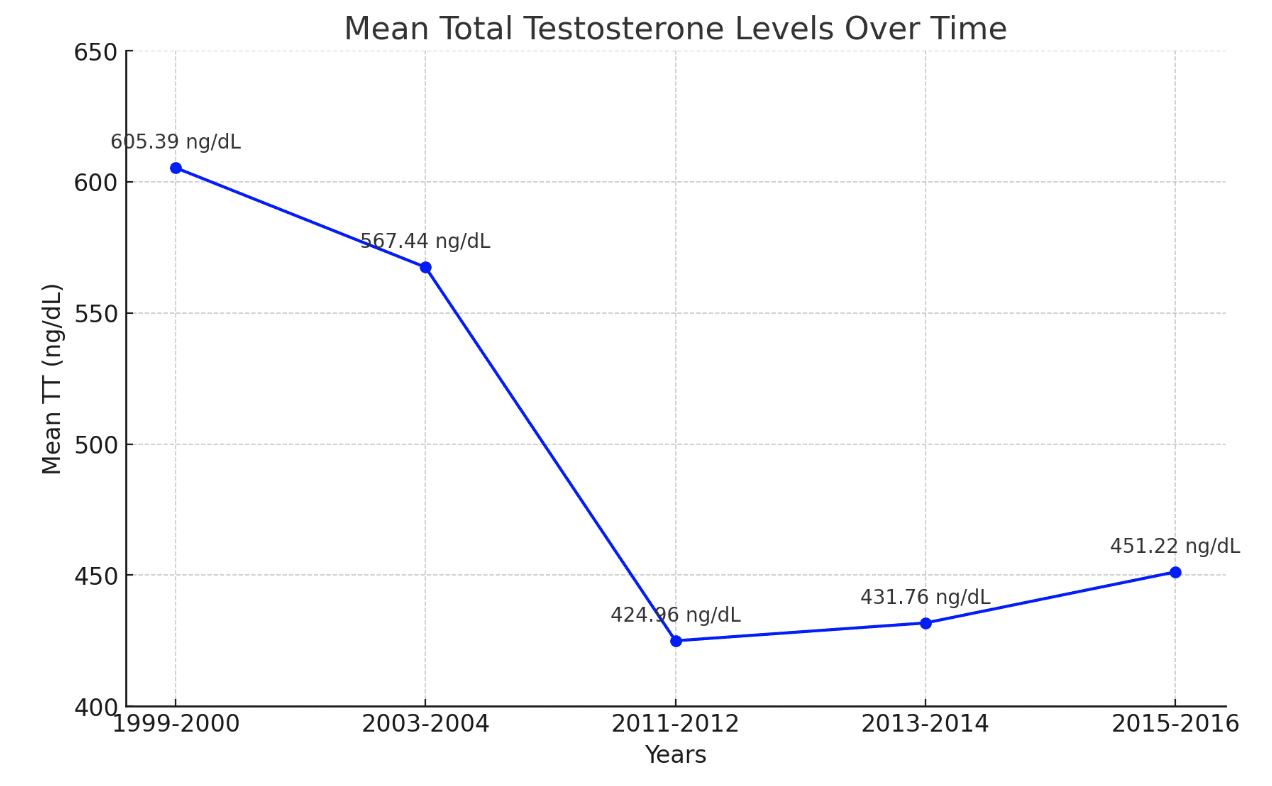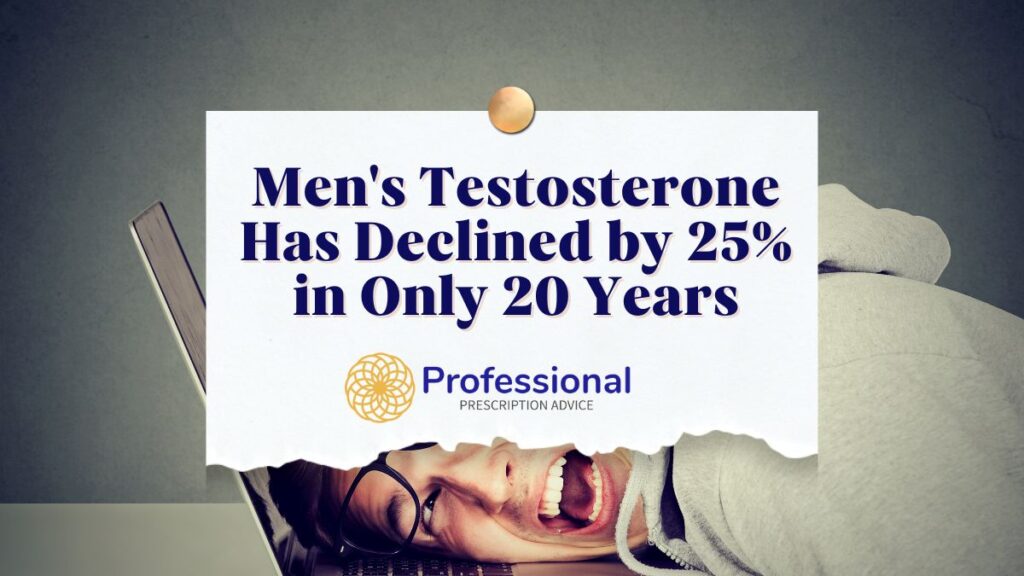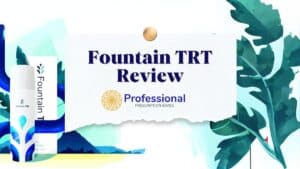Gentlemen, we need to talk about something we don't usually discuss at dinner parties or in the locker room: The significant 25% drop in testosterone levels over the past two decades.
Testosterone levels naturally decrease as men age, but the current trend is an accelerated decline beyond normal aging. Men typically experience a 1-2% reduction per year, starting in their late thirties, associated with changes in strength, energy, and libido.
The current trend shows a more rapid decrease in testosterone, and not just due to aging. Studies show men today have significantly lower levels at the same age as those decades ago. Let's dice into some of the reasons for this:
“
We've got a serious wake-up call: our testosterone levels have plummeted by a staggering 25% in just 20 years.
This isn't just aging—it's a red flag for our health that we can't afford to ignore.
John miller. author
Some of The Causes:
Our Modern Lifestyle

Environmental Factors
Global Trend: A Worldwide Phenomenon
And it's not just in the U.S.; similar trends are popping up worldwide, from Europe to Australia. This global pattern suggests that the factors contributing to this decline—be it lifestyle, environmental, or dietary changes—are not localized but part of a broader, international shift.
A Day-to-Day Perspective
Imagine this - in the year 2000, if you were walking down the street, your testosterone level would likely have been about 25% higher than it is today. The average level has plummeted from around 605.39 ng/dL to a mere 451.22 ng/dL by 2016.

But what does this drop actually look like in daily life? How does it really affect you? Here are some tangible examples:
Well, the reasons our testosterone levels are dipping are as complex as our lives. From the burgers we grab on the go to the endless hours we spend in traffic, and from the never-ending work emails to those nights we just can't catch enough Z's — it's all adding up.
Expert Insights
To give you a clearer picture, here is what some experts in the field have to say.
dr. pantalone | endocrinologist
It's not just aging that's causing testosterone levels to decrease. Our research shows that this decline is also linked to changes in overall health status, including factors like weight, physical activity, and diet... That is alarming from a long-term perspective.
Dr. Gregory Broderick | urologist mayo clinic
The main issues I see are a lack of interest in sexual functioning, fatigue, changes in mental acuity, less stamina, and mild degrees of depression associated with falling testosterone levels. It's vital to diagnose this condition based on symptoms and blood testosterone levels, as not all men need treatment, but those who do can benefit significantly from it.
These insights really underscore the complexity of this issue, and highlight that the decline in testosterone levels is a many-sided problem influenced by both physiological and lifestyle factors.
Looking Ahead: Taking Action
So, what can we do about it? It's not all doom and gloom. Small lifestyle changes can make a big difference. Prioritize sleep, engage in regular physical activity, and opt for a balanced diet rich in nutrients. Cutting down on stress is easier said than done, but it's crucial. Meditation, yoga, or simply spending time in nature can help. Great Green Wall Health has compiled a thorough list with natural ways to increase testosterone levels that is worth a read.
If you're really concerned about your testosterone levels, it's a good idea to consult with a healthcare professional to see what the best approach is. They can provide personalized advice and, if necessary, discuss treatment options like hormone replacement therapy.
In Closing: A Conversation Starter
This isn't just another health trend or a fleeting concern. It's a real, tangible shift in men's health that we need to talk about more openly. By understanding what's happening and taking proactive steps, we can tackle this head-on.
Best Online TRT Clinic:
Fountain TRT








